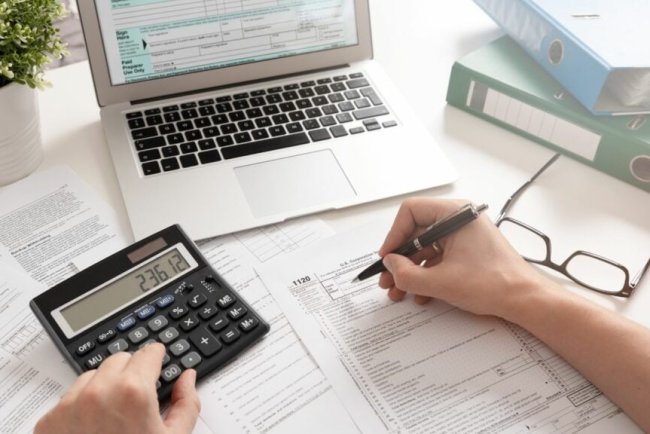The Concept of Goodwill in Accounting: An In-Depth Guide
In accounting terms, goodwill is a kind of asset that doesn't have a presence and stands for a company's reputation customer connections, brand awareness, and other nonmaterial assets. It comes into play when a company is bought for a cost, above the market value of its physical and non-material assets. Goodwill indicates the payment made for the company's market position devoted customer base, and overall business prospects.. When a company makes acquisitions and creates goodwill on the balance sheet it undergoes annual impairment testing to maintain its relevance and accuracy, over time. Goodwill can't be traded individually like assets. Doesn't lose value over time. Its worth is influenced by factors such as profitability, strong market position, and competitive advantage. Grasping the concept of goodwill is crucial for evaluating company success and accurately assessing a business value in transactions, like mergers or takeovers. In accounting terms, goodwill is a kind of asset

Goodwill plays a role, in the field of accounting as an asset that represents the worth of a company beyond its tangible assets and debts. The concept of goodwill is for businesses and financial professionals and surfaces during mergers,s acquisitions, or when forming partnerships. This article will explore the meaning of goodwill, in accounting its importance the different types available how it is valued, and how it is handled in reports. Let us also explore how the insights acquired from studying an Accounting Course can help us grasp and oversee goodwill management.
Understanding Goodwill in Accounts
Goodwill is the magic that makes a business more valuable. It cannot be touched or seen, such as money or a building, but it is quite important.
Consider a toy shop everyone loves because of its friendly staff, cool toys, and great reputation. All that love and trust from people make the shop more valuable than just the value of toys and shelves within it.
For instance, if a company buys another, it may pay more than what the company's things, like buildings and products, are worth. That extra amount is called goodwill. It is like paying for the good feelings and loyalty people have for that company.
Goodwill is what makes a business special and valuable beyond the things you can count on!
Importance of Goodwill
Goodwill is also an important component in accounting and business decision-making for the following reasons:
- It adds value to business: It is the surplus that a buyer is prepared to pay, over the value of tangible assets for the purchase of a business. It reflects the intangible strengths.
- It captures the nonphysical aspects of a business, such as the reputation of the brand, customer base, and market positioning.
- Key Factor in Mergers and Acquisitions: During mergers or acquisitions, goodwill often justifies the price paid over the book value of a business.
- Accounting Recognition: Goodwill is treated as an asset in financial statements, influencing a company's overall financial position.
Types of Goodwill
Goodwill can be classified into two broad categories:
1. Purchased Goodwill
Purchased goodwill arises when one company buys another company and pays a premium over the fair value of its net assets. For example, if a business pays ₹6 million for a company with assets worth ₹5 million, the ₹1 million difference is recorded as purchased goodwill.
2. Inherent Goodwill
Inherent or internally generated goodwill refers to the reputation and customer loyalty built by a business over time. It is not recorded in financial statements because it is subjective and challenging to measure reliably. Unlike purchased goodwill, it is subjective.
Some courses like GST and Taxation course will help you to build the skills for professional Accounting.
Valuation of Goodwill
Valuing goodwill requires precision and an understanding of financial principles. Some common methods are:
- Average Profit Method
This method computes goodwill by multiplying the average profits of past years by a specific number of years' purchases.
Formula:
Goodwill = Average Profit × Number of Years' Purchase
2. Super Profit Method
Super profit is the excess profit that a company receives above the normal profit. Goodwill is calculated by multiplying the super profit by a number of years' of purchase.
Formula:
Goodwill = Super Profit × Number of Years' Purchase
3. Capitalization Method
This method estimates goodwill by comparing the actual business earnings with the normal expected return on capital employed.
4. Market Value Method
Goodwill is determined based on the difference between the market value of the company and the book value of its net assets.
Learning these valuation methods forms an integral part of any Accounting Course or Tally Course, which would help you build the skills necessary for professional accounting.
Factors Influencing Goodwill
Goodwill is influenced by a number of factors, such as:
1. Business Location: A well-located business has more goodwill than one that is located in a less accessible or remote area.
2. Product and Service Quality: This factor improves the good name of a business due to superior quality goods and services. It differs a firm from others selling sub-quality commodities.
3. Management Efficiency: Efficiency in management generally ensures profit; however it works directly for goodwill too.
4. Business Risk: Less hazardous enterprises build more good names. Their operations are mostly exposed in such business environments where they invite great risk.
5. Nature of Business: Goodwill depends on aspects like the product or service nature, demand in the market, level of competition, and regulatory effect. Organizations that are more excellent in these areas tend to have greater goodwill.
6. Favorable Contracts: Companies that can acquire beneficial contracts to sell their products may enhance their goodwill drastically.
7. Patents and Trademarks: Patents and trademarks give businesses a competitive advantage, as such businesses have an exclusive market, which helps them boost their goodwill.
8. Capital Efficiency: Business firms with higher returns on investments and low capital inputs are said to be more profitable, and thus increase the goodwill.
Goodwill in Financial Statements
Goodwill is depicted as an intangible asset in the balance sheet under non-current assets. It undergoes impairment testing, thereby ensuring that its recorded value does not exceed the recoverable amount. If goodwill is impaired, the difference is charged to the income statement as an expense.
Case Study: Goodwill in Action
Let's consider an example to illustrate the concept of goodwill:
Scenario:
Company A is a leading software development company that acquires Company B, a small but highly reputed app development company, for ₹50 million. The net asset value of Company B is ₹35 million, the difference of ₹15 million being the goodwill.
In this case, the goodwill represents the brand equity, loyal customer base, and market position, all vital factors contributing to its high valuation.
Conclusion
Goodwill in accounts refers to the intangible asset value that reflects a company's true worth beyond its tangibles. For accountants, business owners, and all financial professionals, knowing the significance of goodwill, how to value it, and its treatment is extremely important.
What's Your Reaction?















